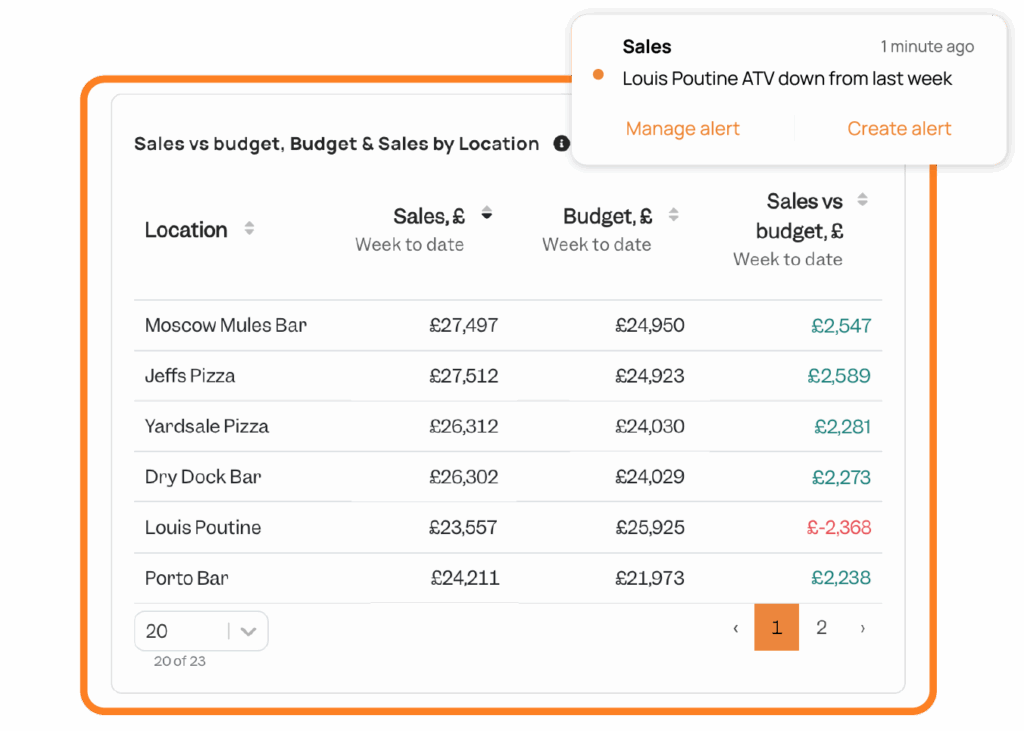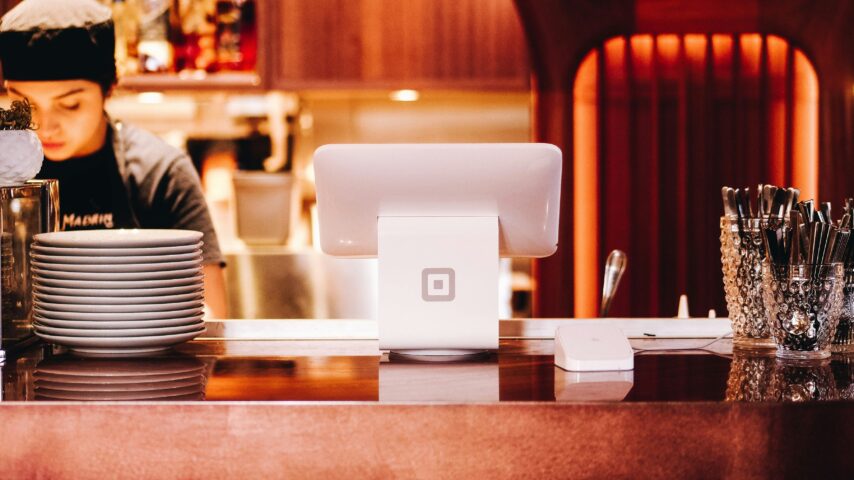Food Halls are increasingly becoming a staple in the hospitality industry, growing 81% in the UK alone. While they offer a vibrant and varied food destination for consumers, they’re complex ecosystems where multiple vendors, shared infrastructure, and high customer expectations converge daily. Managing the day-to-day operations of a food hall requires precision, transparency, and a strong operational backbone.
Below, we explore the key operational needs that, when streamlined and automated, make running a food hall more efficient and vendor-friendly.
Helping to Automate the Vendor Payout/Reconciliation Formula
One of the most critical and time-consuming aspects of managing a food hall is vendor payout and reconciliation. In most halls, vendors are required to pay a percentage of their daily or monthly sales, as well as proportional contributions toward common area maintenance, utilities, and credit card processing fees.
Manual reconciliation can lead to errors, delays, and a loss of trust. Automating this process through integrated systems ensures:
- Accurate percentage-based deductions from gross sales.
- Automatic allocation of shared costs like electricity, trash and cleaning.
- Real-time application of credit card processing fees.
- Transparent digital records for both operators and vendors.
To alleviate the headache of reconciliation payouts that all operators dread, you first need to integrate your respective systems to ensure data flows seamlessly between solutions. Once you have all your data talking to each other, you can then create the report you need; likely, Tenzo does all of this for you.
It’s easy to be overwhelmed when dealing with data across different vendors; the key is to automate your data aggregation and subsequent reporting, as well as the appropriate channels to communicate insights. This way, time is spent supporting vendor success and customer experience, rather than focusing on creating spreadsheets.
Automating the Daily Report
The daily report serves as a vital touchpoint for monitoring the overall health of the food hall. It summarises key performance indicators and highlights any issues or notable events from the day.
The key point to remember is that these reports must be tailored to the person viewing them. A vendor needs information on their stall and the HQ for the business as a whole.
When automated, the daily report can pull in:
- Total sales (by vendor and market-wide)
- Operational costs: labour and COGs
- Maintenance logs and staffing notes
- Weather or foot traffic trends
To gain a comprehensive understanding of daily operations, it is also essential to gather feedback from the teams on the ground. This gives valuable context to the numbers shown in reports and helps understand the ‘why.’ Many businesses rely on WhatsApp or Excel templates for this purpose. Still, feedback often ends up siloed, separate from their core metrics, making it a tedious process to dig through old messages or spreadsheets to identify trends.
By using a reporting tool that lets general managers or shift leads share insights about how the day went, right alongside your key performance data, you keep everything in one place. Whether it’s visible directly in your dashboard or included in your daily email summary, the information stays connected and accessible.
This way, you close the loop: collecting operational updates and capturing feedback seamlessly, all within a single platform.
See the Entire Market in One Place
For market managers, having a consolidated view of the entire food hall operation is essential. Whether it’s tracking real-time sales, monitoring vendor performance, or overseeing shared services, a centralised system saves time and reduces confusion.
A “command centre” for the food hall should provide:
- Live sales tracking across all vendors
- Insights into customer trends and peak periods
- Alerts for unusual activity or operational disruptions
- Snapshot view of vendor health, compliance, and trends
Food halls are dealing with various vendors, constantly being pulled in different directions and feeling like they are playing catch-up. Seeing the whole picture helps managers make data-informed decisions, allocate resources effectively, and identify opportunities for improvement or growth. Like all hospitality businesses, you need to build systems designed to scale with your operations, which begins with streamlining your operations and consolidating all your data in one place.

Giving Vendors Access to Their Data
Vendor relationships thrive on transparency. Providing vendors with direct access to their sales and expense data fosters trust and empowers them to make informed business decisions. It also enables vendors to react quickly to challenges or opportunities, ultimately contributing to the success of both individual businesses and the food hall as a whole.
But today markets face a conundrum, how do they keep vendors up to date with their performance without giving them access to the entire POS setup, where vendors can change menus and see the data of other vendors. Markets need a third party where vendors can only access their data, with anonymised benchmarking data to empower vendors to gauge how they are performing within the market.
A centralised vendor dashboard should include:
- Daily and historical sales reports
- Detailed breakdowns of fees and deductions
- Performance trends over time
- Notifications or anomalies are flagged automatically
Vendors are focused on putting out daily fires and building their brand, and don’t need to chase down numbers or wait for monthly reports. Typically, with a small team, vendors often lack expertise in building complex data structures. They want clear and relevant information that will enable them to plan better, respond faster, and grow with confidence, supercharging their performance.
Final Thoughts
A food hall’s success depends not just on what’s served, but also on how smoothly everything behind the scenes operates. Automating core processes such as reconciliation, reporting, and data access frees up time and mental bandwidth, allowing market operators to focus on what truly matters: creating an excellent experience for both vendors and guests.
When technology and thoughtful management practices come together, food halls become more than spaces; they become ecosystems where small businesses flourish, and the community thrives. If you want to optimise your food hall operations, get in touch with us today!




